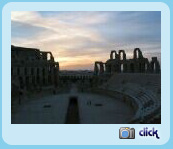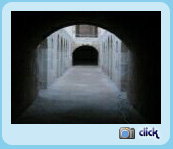WorldTripping.net - Tunisia travel writing and travel articles.,WorldTripping - Simon and Leah tour Tunisia by bicycle. Read the Tunisia travel journal. Peruse the online travel articles. It's all about cycling in and around Tunisia and traveling by bike.,worldtripping,world tripping,simon,leah,simon green,leah ingham,cycle africa,bike africa,bicycle africa,brighton,cape town,overland,brighton cape town overland,uk,sa,overland,uk sa,uk sa overland,coast to coast, coast to coast overland,cycle tunisia,bike tunisia,bicycle tunisia,travel tunisia,traveling tunisia,travel writing tunisia,travelogues tunisia,cycle touring,bike touring,bicycle touring,cycle travel,bike travel,bicycle travel,cycle traveling,bike traveling,bicycle traveling,publishing,publishing online,travelogue,online travelogue,travel writing,travel writing online,diary,diaries,online diary,online diaries,weblog,web-log,web blog,web-blog,blogger,blogging,
WorldTripping.net - Tunisia travel writing and travel articles.,WorldTripping - Simon and Leah tour Tunisia by bicycle. Read the Tunisia travel journal. Peruse the online travel articles. It's all about cycling in and around Tunisia and traveling by bike.,worldtripping,world tripping,simon,leah,simon green,leah ingham,cycle africa,bike africa,bicycle africa,brighton,cape town,overland,brighton cape town overland,uk,sa,overland,uk sa,uk sa overland,coast to coast, coast to coast overland,cycle tunisia,bike tunisia,bicycle tunisia,travel tunisia,traveling tunisia,travel writing tunisia,travelogues tunisia,cycle touring,bike touring,bicycle touring,cycle travel,bike travel,bicycle travel,cycle traveling,bike traveling,bicycle traveling,publishing,publishing online,travelogue,online travelogue,travel writing,travel writing online,diary,diaries,online diary,online diaries,weblog,web-log,web blog,web-blog,blogger,blogging,

| Trips - Cycling Across Africa - Tunisia Journal. |
| "Glimpses" extracts from Leah's journal. |
| "Bonjour! Guten Tag! Hello!" |
| A frenetic start to our trip to Tunisia, and not the best. There were few cars, no freight, but many foot passengers loading everything on to the ferry from giant ovens to huge carts brimming over with blankets and clothes. We stood guard near the bikes. We didn't want to arrive in Tunisia to find our only means of transport, pinned against the wall, or worse. Arguments ensued until finally, we scurried to the bar with our luggage. Simon made several more trips down to the loading bay, returning with tales of cunning and mischief. Passengers, who had heaped luggage on the bikes, would not find it where they had dumped it on their arrival in Tunis. |
| A two-hour delay and we finally set sail, the ferry swarming with police escorting deportees back home. Part of one deck had been cordoned off; no one allowed in, or out. |
| Once in Tunisia, we soon realised that our worries about arriving so late in the evening were unfounded. Taxi drivers joked, " You want taxi?" and every-one smiled. |
| After cycling around for half an hour, we stopped at a petrol station and approached a man to ask for directions. As usual, we were escorted, at high speed, through the streets to where we needed to go. "Welcome to Tunisia," he grinned, before shaking our hands and screeching away. |
| The capital. |
| Tunis was bustling and perfumed with exotic and expensive scents. A modern city. Beautiful women paraded along the streets: the old bedecked with colourful headscarves and long dresses; the young, scantily dressed in designer gear. Couples held hands and families gathered around restaurants. "Hello!" many shouted, looking both bemused and sorry for us. We were shiny and dishevelled from the ferry journey and unsuitably dressed in scruffy clothes. Policemen stood around chatting and, when asked for help, pointed the way to the Kasba, our youth hostel destination. "Welcome to Tunisia," they laughed, as we sped off. |
| The Medusa in the Medina. |
| Simon went in first, on foot. I watched him as he disappeared down one alleyway and emerge, ten minutes later, from another. "You won't like it but it's O.K. And I think I've found the hostel." |
| I followed him into the dimly lit Kasba. Along a series of winding and narrowing streets. A maze. Within minutes, darkness. I could just make out the skinny forms of cats darting between my wheels, their hisses snake like and menacing. Shadows lurked in doorways. The clip clop of hooves on cobblestones chased me around each bend. The uneven path jolted me from side to side and my bike slid from bump to bump. A Youth hostel would never be in here. I shouted to Simon, begging him to turn back. But he was gone. A blinding light. I slammed on my brakes and closed my eyes. |
| "Leah," Simon whined, "Are you coming in? They've got somewhere for the bikes." An oasis at the heart of the Kasba. A friendly welcome. A tiled courtyard and green plants. Men and women sat around quietly chatting or reading books. Students mainly, staying at the hostel while attending courses in the city. |
| A hot day and visas. |
| Our pursuit of the elusive Libyan visa proved fruitless. We hunted this shy beast in likely hiding places. We looked for evidence of its existence in the British Embassy then our Consulate. We had a tip off that the last sighting was in the travel shops where it may be found once we had joined one of their organised tours. A hunting party. Alternatively, we could get into Libya with an invitation from a Libyan hotel, but this beast too, was as elusive. Many claimed never to have heard of it. |
| We stalked the visa to what we thought was its lair, the Libyan Embassy. "We've cycled all the way from London and want to cycle through Libya as part of a round the world cycle trip," we gushed to the official. " Then you must cycle back to London to the Libyan Embassy if you want to apply," he shrugged and dismissed us with a blank stare. |
| Reluctantly we left Tunis. We planned to try the border further south. The Algerian mountains and the Sahara fringes were deemed to be safe enough to take us deeper into Africa. |
| A Royal Welcome. |
| The road out of Tunis was fume filled and dusty. Buses belched dirty clouds from decrepit exhausts. It wasn't long though, before the roads became less congested and we sailed effortlessly along the flat, cactus lined highway. The heat of France had prepared us for the stifling heat of Tunisia and the day passed quickly. People hooted their car horns as they passed us; people walking, stopped, stared then smiled, shouting, "Hello. Welcome to Tunisia." Children chased us, giggling. Motos accompanied us for a few yards, the drivers cheering and chattering. |
| When we stopped for shade, a concerned man rushed up, "Aqua? Aqua?" he asked, after shaking our hands and bellowing, "Bonjour." He looked disheartened when we showed him our full water bottles and we resolved to accept future offers to avoid the kind of wounded look he gave us as he wandered away. I felt safe and looked after. By the time we reached Hammamet, my wrists were aching, not from the cycling but from all the waving. |
| Too much news. |
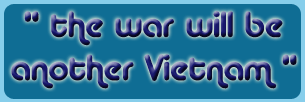 |
| Settled in a nice hotel in the small beach town of Hammamet, we overload on BBC World. It was the first T.V. we had seen in over two months. Bomb in Bali. The Washington sniper. The rebel hostage crisis in Russia. Bush's imminent attack on Iraq looming like a dark shadow. Friends warned us via e-mail to keep out of Algeria. We were even warned by an Algerian couple holidaying in Tunisia to stay out of Algeria. It was perhaps the wrong time to be cycling around the world. We were confined to the hotel room for a week recovering from a stomach bug and couldn't escape the little black box feeding the fear. Luckily for us, we were saved from our melancholy by a couple in their seventies who were backpacking around the world. They plied us with the local Tunisian wine and showed us where to acquire more. Ron had been travelling for the past 15 years and Gudrun was a skilled haggler in the markets of India and South America. They reminded us of why we were travelling and renewed our enthusiasm. |
| Gladiator. |
| The amphitheatre sits majestically in the center of El Jem. Although pillaged over the years to build most of the surrounding town, much of it remains. We were able to explore by ourselves and I was soon lost in its depths. I walked beneath the central arena and felt as Maximus did with his Barbarian Horde. I could hear the roars of the tigers and the crowd as I emerged from the pit into the light. |
| I climbed the steps to the upper galleries and looked out over the town to the distant desert. The long, straight road leading to the amphitheatre is impressive. The road, once more, was full of soldiers in swinging metal skirts, the smell of testosterone filling the air. My thoughts were interrupted and the adventure ruined as the inevitable tour bus arrived. As I glanced down at the tiny throng of tourists in the arena below, I wished that the tigers would spring from their lairs and scatter the group, tear up their guide books and chew up their cameras. |
| The Conspiracy Theorist. |
| The call to prayer rang out at about 4 or 5a.m. The third morning, I was able to sleep through it, as Simon did. He said that we would make lousy Muslims and I agreed, laughing, shrugging off the doubt that had clouded the previous night. |
|
| We had met Ali in the hotel bar. "Welcome. Sit, " he had ordered. He wore a flower in his hair. A big man, early fifties perhaps. He told us that he was from El Jem but had been living in Copenhagan since he was eighteen. |
| He asked us about Bush and Blair but before we could answer, he told us his thoughts, " Bush wants the Arab oil. He wants war and so does Blair." As he saw it, increasingly slurring due to the fig liqueur," the war will be another Vietnam." |
| We steered the conversation away from politics and asked about ways to get into Libya. "Don't go to Libya. The Libyan man will watch you but you won't see him. You have to watch out for the Libyan man. He will kill you." My lips involuntarily quivered as I anticipated the line of conversation to follow. "If Bush and Blair bomb Iraq, there will be no Europeans left in the Middle East. You will not stay alive. I am a soldier. I will fight your Bush and Blair!" At that point, maybe he saw my twitching eye join my twitching lip because he added quickly, "I can see you are peace loving people, my friends. Don't go to Libya. Don't go to Egypt. Cycle up and down Tunisia twenty times. You are safe here." We laughed with him. Temporary relief. |
| We had a brief respite as, once more, we steered the conversation away from subjects that caused tension to talk of his children and music. He told us of the Hendrix, Cocker and Joplin concerts of his youth. He became animated, smiling, "The Muslim man will see you are for peace," he reassured us again. Again the twitches returned. "What is happening in Palestine is wrong. They have the atom bomb. Why doesn't your Blair use the money for war and spend it in his own people? It is not a religious war; it is the war of the politician. It is the politicians who will die. I must keep my voice low but I will tell you a secret," he whispered, leaning closer, "the 18th of January will be another September the 11th." |
| As we were making our excuses to leave, he ordered us more beers. It was only when he began talking of the F.B.I. involvement in the death of Princess Diana that we began to see him, not as an aggressive militant but as a plain old drunk, in a bar, who you would meet anywhere in the world. Even so, the beers were swiftly drunk and we left. Quickly. |
| The Blood Road. |
| A couple of kilometres out of El Jem and the butchery and bloodletting began. We smelled it first, then heard it, then saw it. Again and again, for at least 10 kilometres. Hanging carcasses and the skins of sheep lined the road. Cooking flesh fragranced it. I did not know not to look. To put my head down and pedal fast. Blinkered. Gagging. |
| Instead, I slowed a little. Five sheep. I saw them all at once. One, a rope around its front legs, a rope under its belly, face down, gurgle-bleat as it bled from its cut throat. Another hung, quivering, a man alongside cutting it down its middle. It was barely dead, barely alive. A skin hung nearby from another, its remains being cooked on an open stove. Tied to the stove were two, alive. Bleating to the dying. Tugging at their ropes. Wildly waiting. Pissing and shitting. |
| "Pedal faster!" Simon shouted, breaking me from my inertia. I breathed again quickly, an impending panic attack, but my legs still worked and I flew, like Eliot. I did not look at the scenes to follow. I put my head down and pedalled fast. Blinkered. Gagging. |
| The "hellos" shouted from either side rang out, hollow. I could not stop the smell. I could not blank out the sounds of the knives, the slicing, the hissing of the stoves, the bleating gurgles. But I chose not to look. Not to see. For at least 10 kilometres, along the bloodied road. |
| Ramadan and desert storms. |
| There was more roadside butchery along the road to Gabes but only occasionally. I learned how to cycle and not breathe but gave myself a headache. |
| When we arrived at Gabes, it was dusk. The streets were deserted and populated instead with mosquitoes and the rank smell of the sea oasis. It was Ramadan and the breaking of the daily fast. We learned from a hotel receptionist that everyone was inside their homes, eating, "Manger, manger," he babbled. He was friendly and funny but the stench from outside the hotel filled its rooms and we rested instead at another cheap hotel with sweet smelling Jasmine in its courtyard. |
| That evening, the town came alive, bands playing, restaurants closed but the cafes heaving. I felt slightly unnerved. There were no women. "They're all indoors washing up," Simon joked. |
| We spent two days in Gabes and discovered that it truly was the "Gateway to the South." We were on the fringes of the Sahara. Shepherds wore the big, brown desert cloaks and everyone wore scarves around their heads. One afternoon, the desert came to the town of Gabes in the form of swirling yellow orange clouds, much like fog. The ends of the streets disappeared and Simon returned from a bread hunt covered in fine grain. Everything in the hotel room was covered in a thin layer of orange dust. |
| The Mosque prayers rang out all day and most of the night and once again I felt in a strange and beguiling place. It was hard to reconcile the experience with the memories of home despite England being only a PubliNet away. |
| The Trogs. |
| We left the GP1 Highway once again and struck out towards "Star Wars" country. The land of the cave dwellers. The road was paved and quiet. Sand dust blew across the desert scrub and my eyes itched. Cars hooted their friendly greetings and workmen digging trenches cheered. The terrain was soon hilly and my legs ached despite the relatively short distance of 50km to Matmata. |
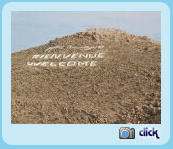 |
Nearing our destination, the Troglodyte homes began to appear. Pay a few Dinars and you were welcome to explore. We pushed on, up the last hill and reached the huge "Welcome to Matmata" sign made out of white stones. A young boy dashed out to meet us proffering a baby bottle full of white liquid. His baby camel stood hobbled nearby, its tethers eating into its legs. We declined the offer to feed it (only a few Dinars) and checked our map. Within seconds we were inundated with offers of help.
After arranging a veggie meal in a local restaurant, we found a hotel, its price plummeting from an expensive 45 Dinars to 25 Dinars as we prepared to leave. Striking a deal, we chose to stay in the luxury hotel with fake cave rooms rather than opting for the overpriced "Star Wars" hotel with real caves but limited hot water. Convenience won over romance.
That night, we were abruptly awoken by the beating of a drum. The Mosque was out of earshot of the locals and so a drummer was employed to wake us all up at 4am. We were, of course, very grateful.
|
 |
| Off Piste. |
| The heat was bearable and the scenery breathtaking. Although the road was unpaved and littered with treacherous holes, we loved it. Desert mountains stretched out on all sides and we spied tiny 'biblical' villages in the valleys below. Simon had his first ever slow motion fall and landed legs akimbo. I did try not to laugh. |
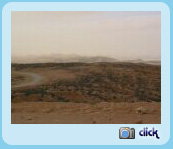 |
Our epic journey continued, each turn revealing ever higher peaks. We waved down passing motos and cars to check our route (who needs a GPS) and shook-rattled-and-skidded on. We were tempted to take up the offer of a night in a hilltop tent, looking out over the village of Toujane but were reluctant to part with more Dinars.
The sun was an hour away from leaving us and we had to be on tarmac by nightfall. A daring dash down into the valley led us to a gravel road. Speeding past startled villagers, we ploughed on. Tired and dirty, we finally found a sign to Medenine and cycled by moonlight for the last hour.
|
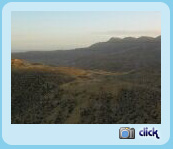 |
| Simon's Tunisian Delights. |
| Why Tunisia. |
| Roman road markers, Arabic signs posts and Tunisian dust clouds make cycling around the country - interesting. Stretches of olive groves are separated by hot and dusty desert roads complete with thundering vehicles throwing choking fumes and sand in their wake. Roads are pot holed and frequent road works make the going slow at times. Cycling, you have to dive off the road to avoid oncoming overtaking traffic. Walking, you have to look both ways crossing a one-way street, just to make sure a car, moto or sometimes a train is not bearing down upon you. But all of this is more than compensated for by the friendliness of the people. Children by the roadside shout greetings and laugh as we pass. Gaggles of walking schoolchildren chase us, laughing and shouting hello in innumerable languages. Children hang out of bus windows and wave as they pass us. Lorry drivers honk horns, wave and blink their taillights in greeting as they roar past us. Passing motorists wave madly as they approach us. Even sitting in the shade eating lunch elicits nearby house dwellers to approach and ask us if we need food or water. This welcome is not reserved solely for the odd sight of touring cyclists. Look slightly lost in a city, and people will approach you and ask if you are OK, and if you need directions. Everyone knows where everything is, and although the distances given may be hopelessly inaccurate the direction will be perfectly correct. If you want to know how to get from A to B, you don't just need to "ask a policeman," you can ask anyone. |
| The Kasba. |
| You may think that nine o'clock at night is the worst time to cycle through the deserted, badly cobbled, poorly lit and labyrinthine Tunis medina attempting to locate accommodation, map less, guideless and with no grasp of Arabic. It is certainly not for the faint hearted Kasba virgin, with a multitude of identical streets, a mass of alleyways and shadowy, lurking figures that fuel the darker side of the imagination. You would be wrong. It is infinitely faster than attempting to cross the same distance during the day, hemmed in as you are by pasty Europeans purchasing fluffy camels and waving digital cameras, and the lurking shadows are remarkably helpful and fluent in most languages. |
| Scams. |
| Spend any time at all amongst the tertiary industries and you'll witness an array of subtle confidence tricks. There are monetary scams, ranging from simply being slow at returning all your change to the mis-pricing of products, and are designed to separate your cash from your wallet. There are 'introduction' scams where the range is from someone's recommendations of a hotel, to the 'waiter from your hotel that you do not recognise' trying to sell you hashish. None are particularly invasive or annoying and after a while a smile will creep across your face as you recognise and outflank yet another variation on a theme. |
| Petty Revenge. |
| I have been buying my cigarettes from the man with the stall next to the hotel. He has been consistently overcharging me for 'Cristal' cigarettes for three days and I want at least a moment of petty revenge. I know how much he charges and spend five minutes counting out a massive pile of coppers. I rummage through bags and pockets to make sure that he gets every last piece of small change we have. When I have a fistful of coppers, I nip out to buy the cigarettes, he quotes the price, and I dump about half a kilogram of small coins into his hands. He makes a funny noise, I apologise for all the change, grin, pick up my fags and leave. I even short-change him. |
|
|
| Death. |
| We are privy to some everyday Tunisian horrific sights. Either side of the road to Sfax has sheep and goats tethered to iron braziers. The sheep are being sliced slaughtered bled and cooked by the roadside, their companions waiting their turn for the knife, as traces of the crimson blood are washed away into the sand. The sound of fat hitting charcoal fills the air. The stench of fresh death vies with the odour of burning flesh. Butchers hooks hang empty in anticipation, ready to be filled with a cow's head, an eviscerated sheep or a woollen pelt, depending on the briskness of trade. Carcasses hang, attracting flies in the sun and motorist stop to sit amidst the odour and fumes to lunch, apparently oblivious to the pitiful bleating of their dinner waiting to be butchered. It is like a mad restaurant where customers choose their lunch while it's living, only here, if you order food for all the family you get a free hearth rug. I can see Leah retching as she cycles. I try to breath through my mouth to avoid stimulating my olfactory glands. |
| After eight kilometres, we think it is all over. It's not. Further down the road it is the turn of the small animals, the turkeys, geese and ducks. They sit around listfully in each other's shade, out of the glare of the sun, having been herded, in a waddling twisted row, legs tied together, to the shop front and their inevitable fate. This is not the image of Tunisia you get from guidebooks or brochures. I imagine a big image of the omnipresent President, looking munificent, hands clasped; but on closer inspection I see that the hands are wringing the neck of a duck. I think I've seen enough and we sit in a bus stop for introspection and lunch. The last few kilometres into Sfax have more of the same nauseating sights. I cannot comprehend the cruelty of skinning an animal whose heart is still beating, in full view, earshot, and blood splattering range of the rest of its flock. We get to Sfax weary and in need of a bath. |
| BumBum Part 1 - The Meeting. |
| One evening, I wander the 'Ramadan at dusk' deserted streets of Medenine, in search of cash and food and I meet BumBum outside the PubliNet. He too is cycling across Africa and is headed to Libya. After chatting and wandering the streets together, wishing lone policemen "Salaam - Bon Appetite" we end up drinking coffee in our hotel cafe. BumBum is prepared. Mentally, physically, technologically. |
| He has a perfectly clean full suspension touring bike; specially made prototype carriers for the Ortlieb front and rear panniers; strengthened touring wheel rims with appropriate tyres; super strong Swiss spokes; Aero Bars for cycling comfort with an on-board compass; a cycle stand; a rear view mirror; adapted water bottle cages for carrying extra liquids; an extra long and wide ThermaRest; a GPS with pre-plotted way points; a telephone with Global roaming access; efficient and properly layered cycling attire; padded cycling gloves to help prevent 'sleeping-hands'; proper detailed maps of all the countries en-route; visas for Libya and Sudan; scanned Euro-notes as 'disposable' money; and pepper spray. He is knowledgeable and prepared for all the countries he intends to visit. He knows which borders are open and safe; what terrain is dangerous; where mines have been laid and mapped and where seasonal rains have washed mines into uncharted territory; where robbery and theft takes place, by what method, and by whom; where he will be mobbed by children; where all the biting insects are and what colours they are attracted to; what wild animals live where and which ones to definitely avoid; when to take the ferry; and when to take a convoy. He knows where he will be, on what day, and how he got there. BumBum has cycled from Germany to here in the time it took us to cover a third of France. He is everything we are not and we are left feeling slightly hapless, inadequately amateurish and poorly prepared. He leaves to cycle eight kilometres to find a makeshift bed in an empty house, and we retire to our hotel room. |
 |
| Would you like to read more ? |
| Before here we were in Sicily. After here we were in Egypt. |
Copyright (C) 2002 - 2008 by Simon John Green and Leah Simone Ingham - WorldTripping.net
All rights reserved.
No part of this work may be reproduced in any material form (including photocopying or storing it in any medium by electronic means) without written permission of the copyright owner except in accordance with the provisions of the Copyright, Designs and Patents Act 1988.
Any unauthorised act in this respect may lead to legal proceedings, including a civil claim for damages.
WorldTripping.net is not responsible for the content of external web pages.
|
|
![]()

